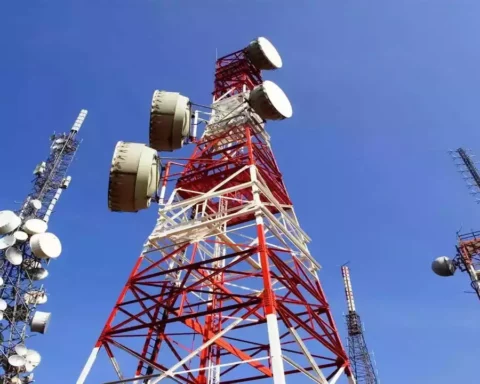Keysight Technologies, Inc. (NYSE: KEYS), a leading technology company that helps enterprises, service providers, and governments accelerate innovation to connect and secure the world, today announced that it has signed a Memorandum of Understanding (MoU) with the Indian Institute of Technology, Madras to support Telecom Standards Development Society, India (TSDSI) in development of India specific 5G standards. The MoU signing follows the International Telecommunication Union (ITU)’s recognition of the 5G Radio Interface Technology (RIT) introduced by TSDSI as a candidate 5G standard.
To encourage Indian startups and the telecom industry to take an early lead in 5G, the Department of Telecommunications (DoT) is funding a large-scale project called ‘5G Testbed’. The goal of the project is to build a test bed that closely resembles a real-world 5G deployment. This project will create a 5G prototype and testing platform that will be developed under the guidance of more than 50 researchers and engineers based in the IIT Madras campus using equipment developed by Keysight Technologies. Keysight is currently building on the functionality required for testing of new radio interface standards developed at IIT Madras.
Commenting on the association, Mr. Satish Dhanasekaran, Senior Vice President and President, Communications Solutions Group, said “5G promises to open doors to exciting new applications in areas such as telemedicine, remote surgery, agriculture, education, Industry 4.0, smart cities, augmented reality, and autonomous driving. As 5G deploys, it is important that we focus on bridging the rural-urban digital divide globally. We are pleased to partner with IIT-M, TSDSI, to enable the rural use cases and standards.”
“India has a large rural population and the low mobility large cell model can really help us in becoming truly digital as a country,” said Dr. Bhaskar Ramamurthi, Director of Indian Institute of Technology, Madras. “Our partnership with Keysight Technologies aims at developing technologies that will fulfil the unmet need of connecting people from every possible remote corner of India in a better way.”
Aligned with the prime minister’s vision of Atmanirbhar Barat, TSDSI’s 5G RIT improves upon the 3rd Generation Partnership Project (3GPP) RIT by providing enhanced performance for ITU’s Low Mobility Large Cell (LMLC) rural use case. Designed to make 5G technology work well in rural areas with low-speed mobility and large cells of up to 6 km radius, this indigenous technology primarily seeks to bridge the digital divide by enabling affordable 5G broadband, leveraging India’s rural optical fiber network BharatNet.
According to Mrs. Pamela Kumar, Director General, Telecommunications Standards Development Society, India, “5G is going to be a paradigm shift and not just a technology update or upgrade. The Low Mobility Large Cell use case is not just limited to smartphones, but various other segments like education, healthcare, smart cities and security, which can help in complete socio-economic development of the nation.”
1 min read
Keysight Technologies Signs MoU with IIT Madras to Enable Testing of Homegrown 5G Standards









